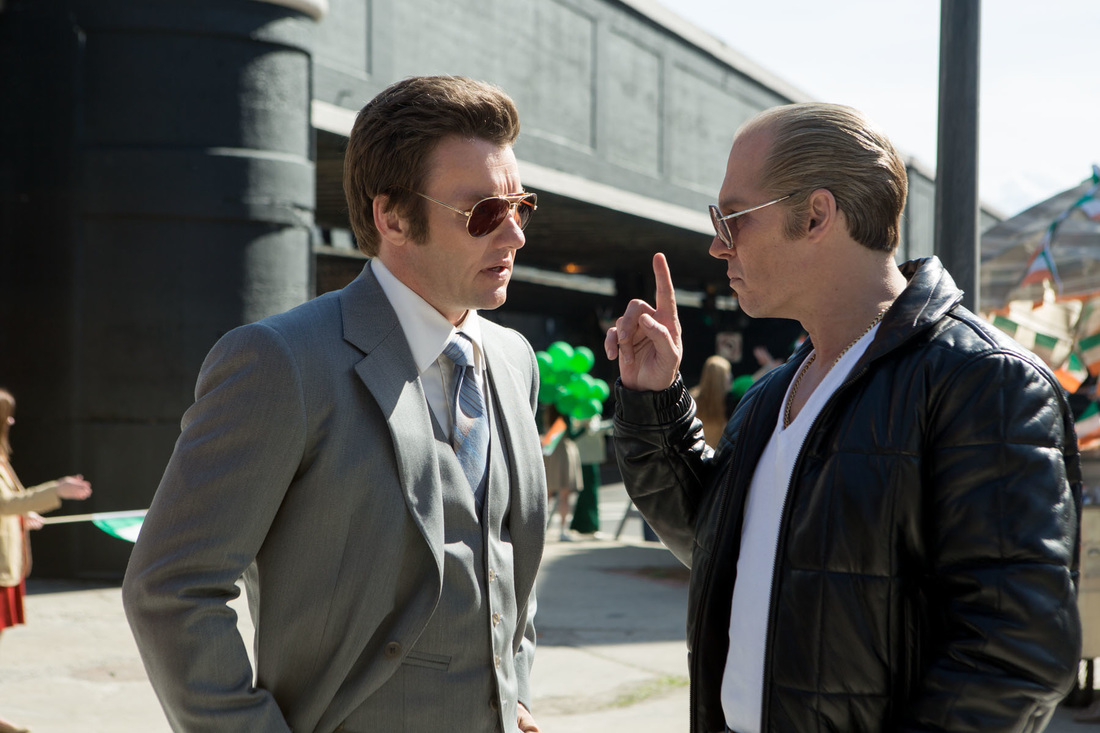As cinematic kingpins go, the Whitey Bulger of Black Mass just isn't very interesting. He bumps off informants and traitors, intimidates people, loves his family enough to humanize him a tiny bit, and looks good from a low angle with a gun in his hand and the sun over his shoulder. His isn't a new story, especially when contrasted with Connolly or Billy Bulger, which are far more dramatically compelling. A state official with a large brood of children and a vicious crime boss of an older brother sounds like a novel story, as does an FBI agent who goes way too far in protecting his source out of some disfigured fraternal affection that is never repaid. However, Billy is barely a figure in Black Mass and Connolly's infatuation with Whitey is always taken for granted, never doubted or questioned even when Whitey is threatening Connolly's wife (an underutilized Julianne Nicholson).
Being a film so purely about Whitey, the most fascinating, stranger-than-fiction parts of his life are offhandedly mentioned, like the LSD experiments he did as a prisoner or the serendipity of his winning the lottery and then spreading it around over Southie and further endearing himself to its residents. These are elided for another tense sequence of rat murder in a film that has at least three. Cooper also includes perfunctory scenes of Whitey and his young son, imparting bad lessons but lovingly fawning over him. This is half-hearted stuff, sap without the courage of its convictions, and a decision that further reinforces that Whitey is not the best main character in this story.
Despite the frustrating script, Cooper and his cast know how to at least make the proceedings look and sound professional. Cooper lets scenes breathe with foreboding and tension. Depp isn't just hiding under prosthetics, as he's increasingly wont to do, though the dead tooth and the ghostly contact lenses are doing a lot of work. His Whitey is an enigmatic presence, someone who will probably kill you, unless he doesn't, which might mean he's just toying with his prey. Edgerton's increasingly sweaty and grossly obsequious performance makes his Connolly the worst person in a room full of murderers, and Corey Stoll blasts into the third act as an agent less likely to take Connolly at his word. A brief role for Peter Sarsgaard, playing a drugged-up Florida associate, injects some needed life into the film, even if the whole incident involving him doesn't weigh heavily on the plot.
Black Mass is playing in a familiar sandbox, and its all-star cast isn't enough to elevate the film. By shirking the remarkable aspects of this story and focusing on the overdone ones originated by better writers, Cooper's film doesn't manage to impress, settling only for entertaining moment to moment. I left the film with no greater understanding of much of what happened, beyond a superficial beat-by-beat rehashing of events. I'll hope to get more about Whitey Bulger from the well-received documentary about him. C

 RSS Feed
RSS Feed